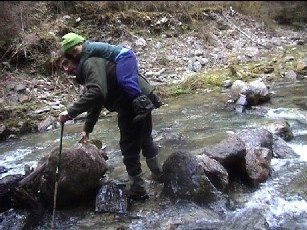And yes, I feel larger populations with hierarchical structure in which people are forced to work much harder and suffer from widescale warfare, disease, famine and pestilence are "evil."
These ills you complain of weren't exactly absent when populations were smaller. Larger populations have led to more rapid advancement into mitigations of these evils.
I fail to see how you think we can replicate the Earth's weather system or other life systems.
I fail to see why we need to. We only need to replicate systems that we rely on: crops for growing food and the dependancies upon growing these crops.
The critique of ad-hominems is that they serve no purpose and merely damage the credibility of the argument while generally undermining civility alltogether.
No matter how much we study the butterfly, it's flight pattern, it's biology, it's reproductive process, it's life cycle... no matter how much scientific study we throw at the butterfly, we will never be able to make a butterfly.
Wonderful analogy. Why would we want to make something as novel and useless as a butterfly from scratch. I dont think you understand what I'm suggesting at all.
Dezakin--Are you serious in all that you're saying?! If so, the fact that you see every resource and life on this planet as something to be conquered and exploited leaves me with a strong sense of anger and disgust. You've got to be kidding, or satirizing, or something; otherwise you seem like nothing better than the old slavers of the South, the Indian killers, or the wolf hunters.
Of course I'm serious and your visceral reaction illustrates my point: People here largely wont see the world as it is because it goes against a pseudo-religous vision of how the world should be. But of course everything exploitable on earth will be exploited and processed in time. It doesnt matter if its good or bad, but it will happen.








![5bullwhip [smilie=5bullwhip.gif]](https://peakoil.com/forums/images/smilies/5bullwhip.gif)